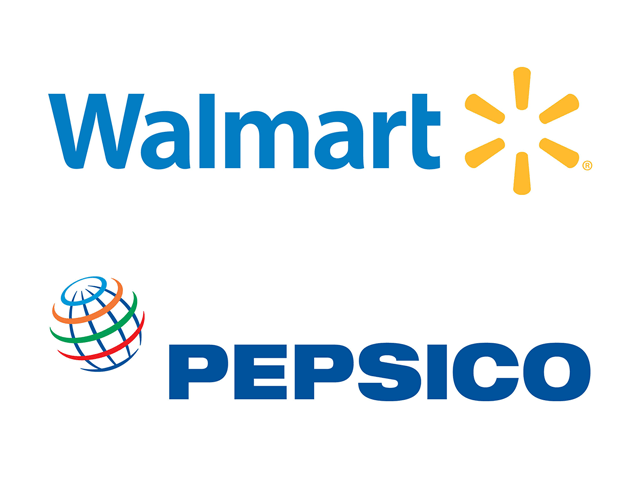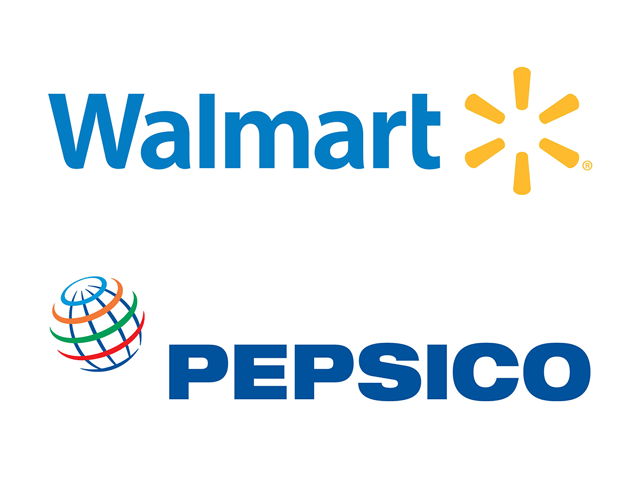Ag Policy Blog
PepsiCo and Walmart Investing in Regenerative Agriculture
The nation's largest grocery retailer and largest food-and-beverage company -- Walmart and PepsiCo -- are joining forces to invest in regenerative agriculture.
The two corporate giants announced a seven-year project to spend as much as $120 million to support farmers in the U.S. and Canada. The companies stated they would scale up "financial, agronomic and social programs" to help with the adoption of regenerative agricultural practices on more than 2 million acres of farmland.
PepsiCo and Walmart stated their efforts with farmers would lead to "approximately 4 million metric tons of greenhouse gas (GHG) emission reductions and removals by 2030 -- roughly equivalent to the amount of electricity needed to power 778,300 homes for one year."
"PepsiCo and Walmart are dependent on farmers to grow ingredients that are used to make the delicious products that consumers enjoy every day," the companies stated. "With a supply chain for the two companies that stretches across North America and involves a large volume of critical crops -- including potatoes, oats, corn, wheat, soybean and rice -- sustainability will look different from commodity to commodity, region to region, and even farm to farm. The collaboration between PepsiCo and Walmart offers a voluntary, flexible approach to regenerative agriculture that gives farmers a seat at the table, recognizes the diversity of agriculture and that one size does not fit all."
The companies referenced their goals were to help farmers "improve soil health and water quality" as well as lowering carbon emissions. The companies did not specify what practices would fall under "regenerative agriculture" or how they would quantify the benefits to producers or communities.
In their news release, PepsiCo and Walmart quoted Jeff Huffman, a farmer from Maxwell, Neb., who said, "From my perspective, embracing regenerative agriculture is essential. It's good for farmers, not only because it's beneficial to the environment and our food quality, but also for the profitability of our businesses," Huffman said. "If you use less fertilizer and you grow a bigger crop, or if you use less water and can still grow the same size of crop, it strengthens your farm in a way that benefits the bottom line and our environment for generations to come."
PepsiCo stated, "a resilient food system is essential to PepsiCo's business" and its sustainability goals, "which include driving the adoption of regenerative agriculture practices across 7 million acres by 2030 -- an area approximately the size of PepsiCo's agricultural footprint -- and reducing absolute GHG emissions by more than 40% across its entire value chain by 2030 (against a 2015 baseline) while striving toward net-zero emissions by 2040."
P[L1] D[0x0] M[300x250] OOP[F] ADUNIT[] T[]
"This effort is a new model for PepsiCo, marking our first, large-scale strategic collaboration focused on sustainable agriculture with a retail partner," said Steven Williams, chief executive officer, PepsiCo Foods North America. "Farmers are critical to our business, and many of the brands our consumers know and love rely on ingredients that we source straight from the farm. By joining forces with Walmart, we'll be empowering farmers through education, upfront investment in outcomes, peer coaching, and cost-sharing -- and hopefully inspiring others to join us."
Jane Ewing, senior vice president for sustainability at Walmart, said the retailer's sustainability strategy is to help its consumers "make the everyday choice the sustainable choice." Ewing added, "This collaboration with PepsiCo is a great example of how we are prioritizing the expansion of regenerative agricultural practices among farmers across North America so that we can continue to make quality products affordable and accessible for customers. This collaboration aims to help elevate farmer livelihoods, engage them on how to more sustainably manage soil health, increase yields and create a model that others can mimic across other product categories, including encouraging additional investments in regenerative agriculture by other brands."
In a related release, Environmental Working Group (EWG) on Wednesday also issued a report citing that farmers in 11 Midwest and Plains states could reduce nitrous oxide emissions by more than 4 million tons through more aggressive use of rotating crops, planting cover crops, reducing tillage practices and adding more grass strips and trees on their farms.
PepsiCo's sustainability page https://www.pepsico.com/…
Walmart's sustainability page https://corporate.walmart.com/…
Also see, "EWG: Common Practices Can Reduce GHG Emissions From Corn Production,"
Chris Clayton can be reached at Chris.Clayton@dtn.com
Follow him on Twitter @ChrisClaytonDTN
(c) Copyright 2023 DTN, LLC. All rights reserved.






Comments
To comment, please Log In or Join our Community .